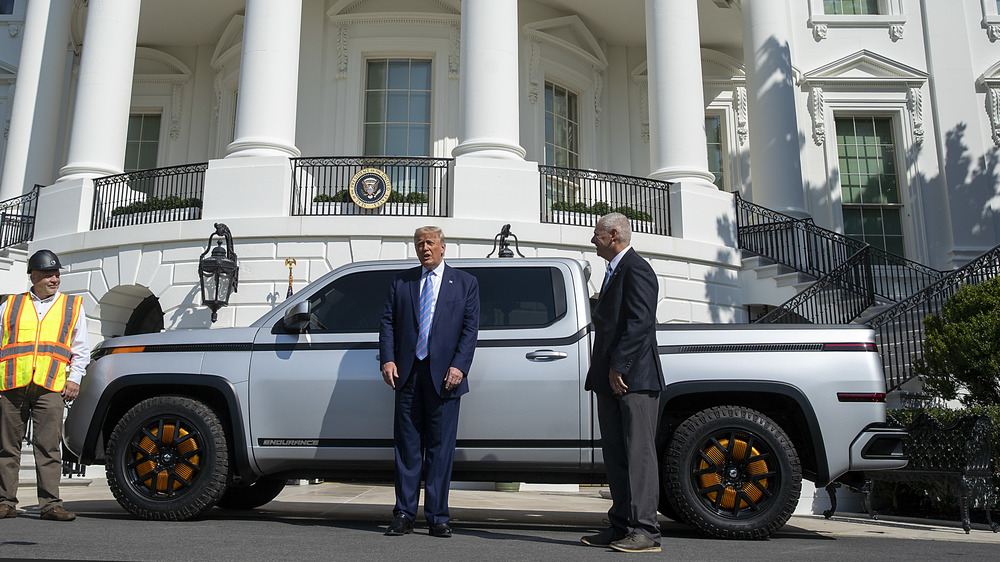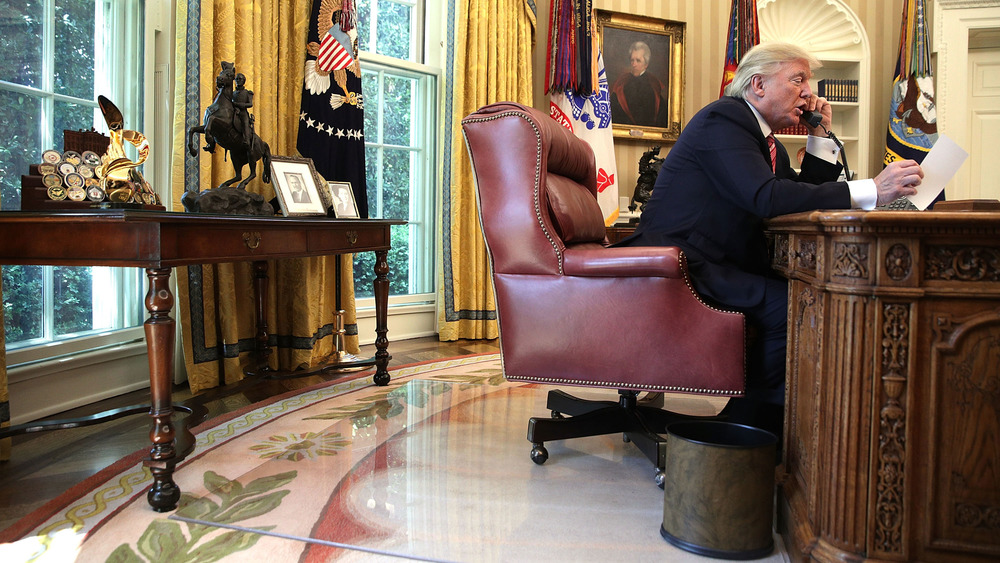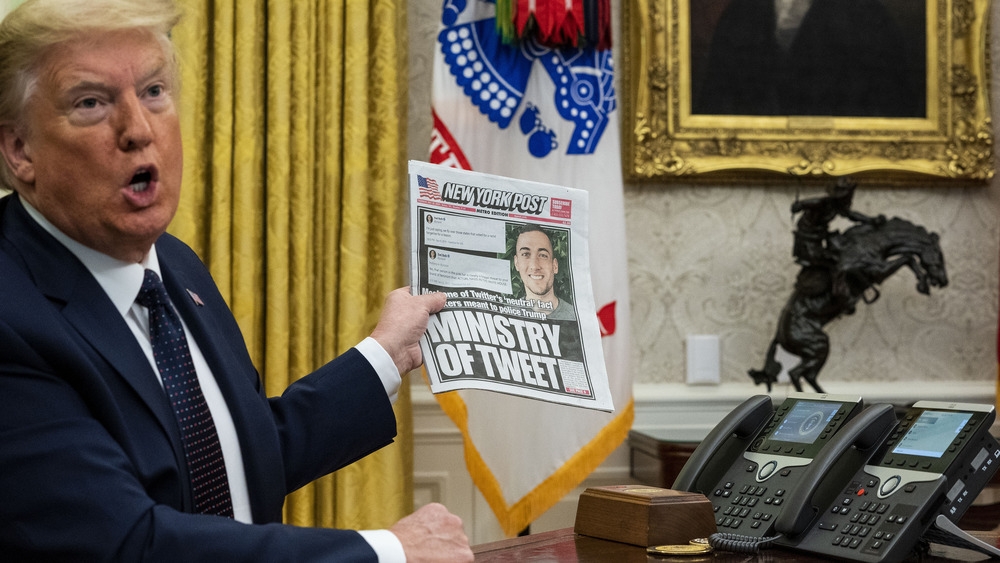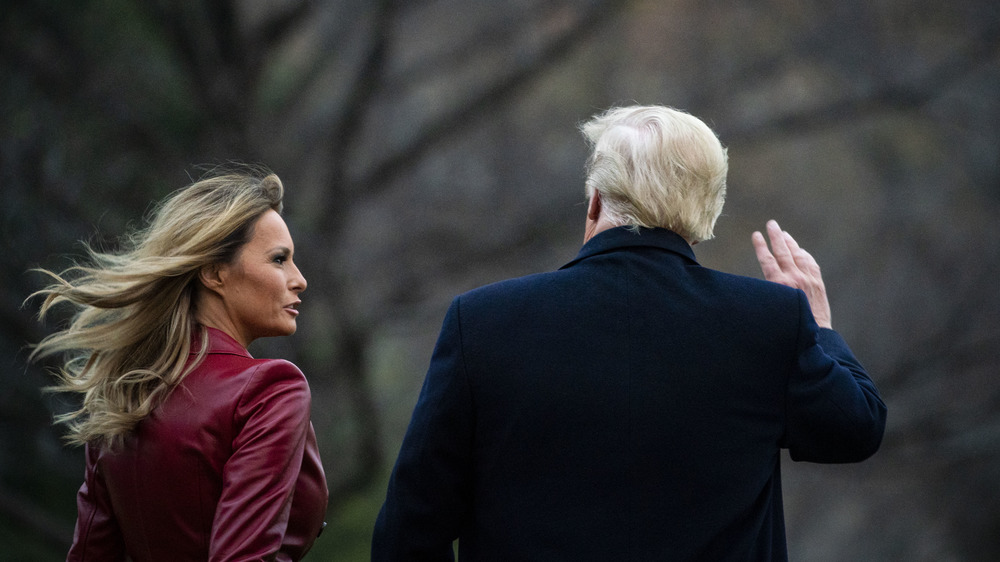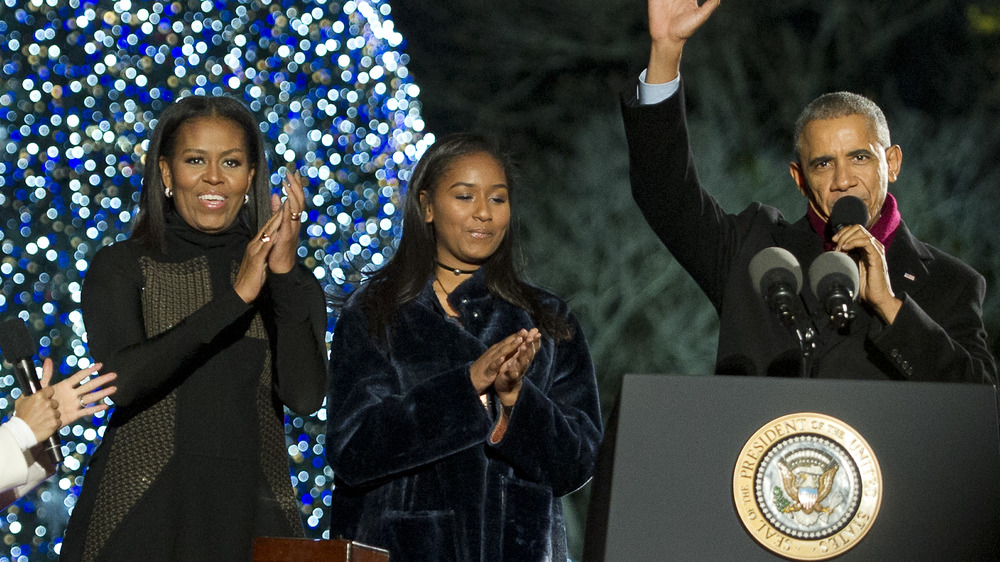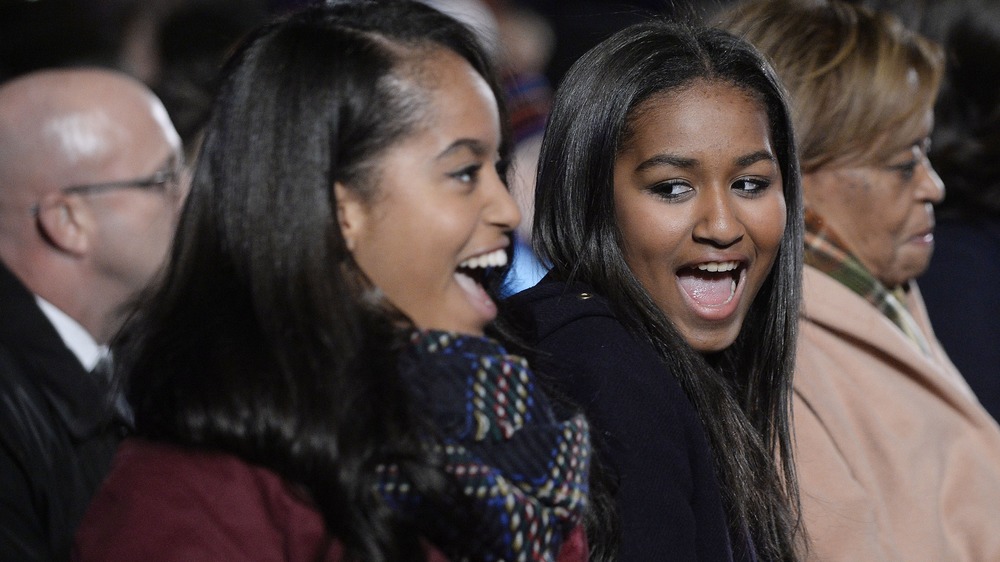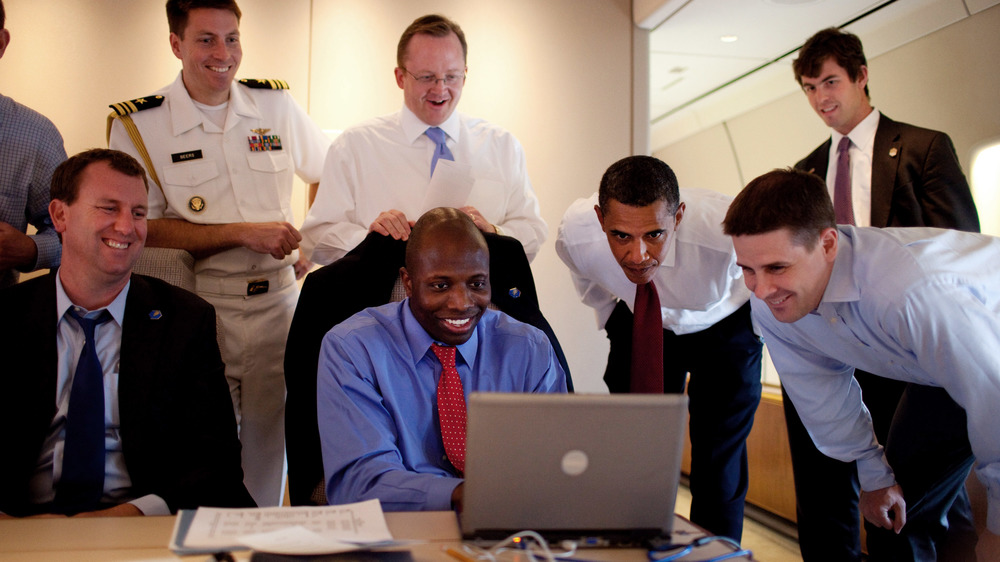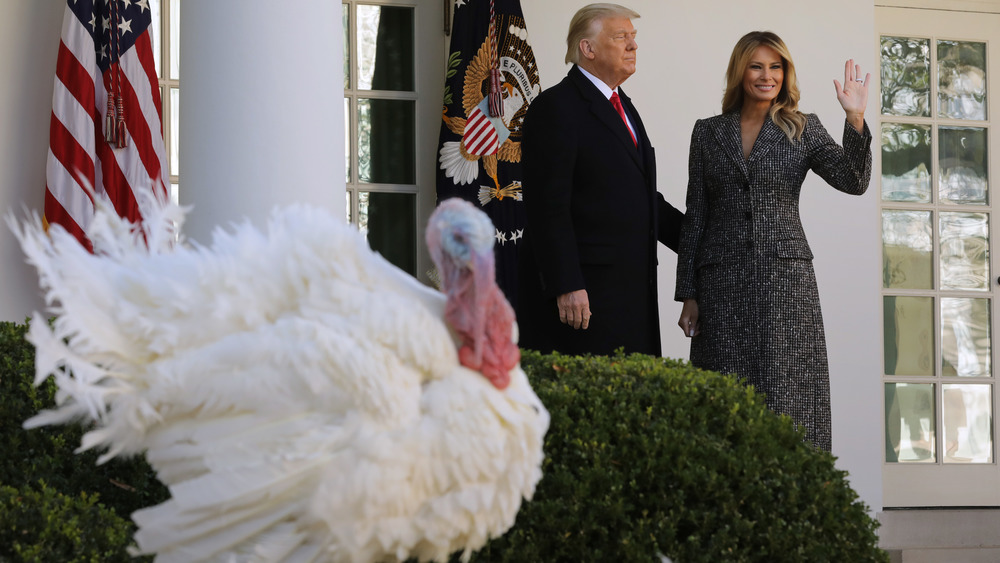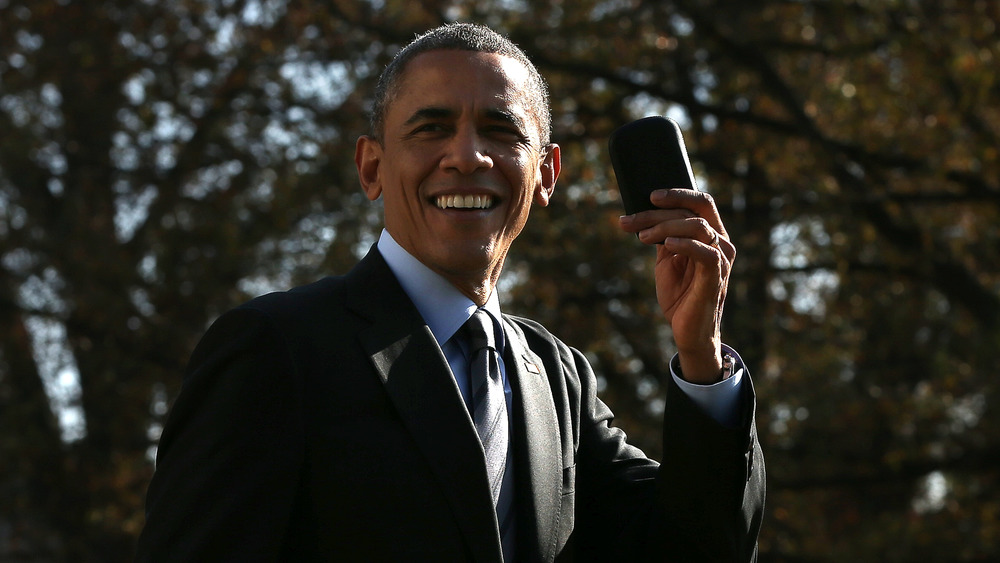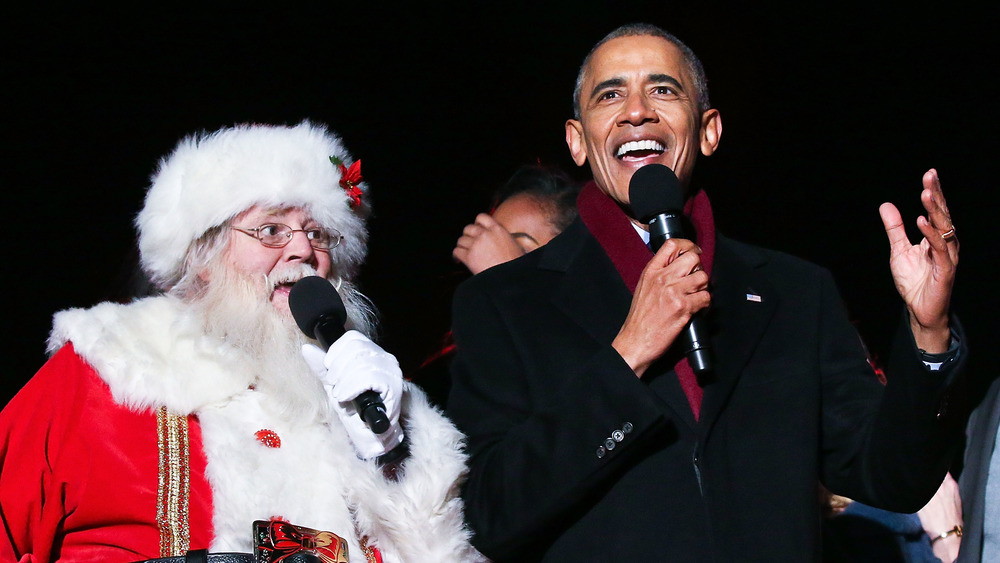Rules That Friends Of The American President Have To Follow
Being good friends with the president of the free world might seem pretty cool. Sure, they might not have much time for things like those long, late-night chats where you solve all your relationship problems, but there's always the chance you might get a ride on Air Force One, and honestly, the trade-off would be totally worth it.
But even if someone grew up with the POTUS and lived down the street from him as a kid, even if they rode bikes and celebrated single-digit birthdays together, that doesn't mean there's no strings suddenly attached to that friendship. No one's going to be just popping by 1600 Pennsylvania Avenue unannounced, and no matter what kind of embarrassing photos they might come along with, the Secret Service isn't going to fall for it.
There are a few rules that even close friends are subject to when a buddy gets elected to the highest office in the country, and it really is a life-changing deal — which means there's stipulations that continue even after their term ends. It's a bummer, but friends gotta do what friends gotta do to set up a time and place to watch the game.
There's no spur-of-the-moment phone calls or video chats
Presidents are allowed to largely set their own sort of schedule, and according to the BBC, what that looks like depends largely on the president in question. President Trump, for example, had a schedule interspersed with "Executive Time" for watching TV and tweeting, President Obama made sure he was always home for family dinners, and President Jimmy Carter was notorious for working long hours and getting little accomplished.
But when it comes to personal time, that's subject to some serious oversight. According to Virginia Commonwealth University's Homeland Security professor Matt Pinsker (via RD), phone calls and video chats between a president and his personal friends can't just happen anytime — and friends aren't allowed to just pick up the phone and call, or ring up on Zoom.
Activities are coordinated by the Secret Service, and that includes a friendly chat about how the kids are doing in school. The president has to let them know about the call first and a secure line has to be used. For all that trouble, they'd better have something good to say.
The president's friends can't expect endorsements
All business owners know how important a shout-out from the right people can be — which is why Business Insider reported that Kim Kardashian West usually gets between $300,000 and $500,000 for just one Instagram post endorsing a product. While it might seem like a given that an endorsement from the president might be even better, not even close friends should expect some free publicity for the simple reason that it's illegal.
In 2017, President Trump tweeted: "Thank you to Linda Bean of L.L. Bean for your great support and courage. People will support you even more now. Buy L. L. Bean." US News & World Report says the tweet came in response to L.L. Bean's $30,000 donation supporting the Trump cause, and it came with something else, too: a very direct reminder from the Office of Government Ethics.
They posted a refresher announcement to all employees of the executive branch of the government, and it was a reminder that "the rule against the misuse of position prohibits employees from ... endorsing any product, service, or company." Director Walter Shaub went even further, specifying that it was absolutely forbidden for anyone to use "public office for their own private gain [or] for the private gain of friends, relatives, or persons with whom they are affiliated in a non-government capacity." So, as awesome as it would be to have the Pres do an Instagram post promoting their buddy's start-up soap company, it just can't happen.
Confidentiality is a tricky thing
Anyone who's good personal friends with the president probably has a lot of juicy inside info that the public would love to have — and that makes confidentiality a tricky thing. When it comes to President Trump, he decided to deal with that by having everyone — from porn stars to campaign workers — sign a non-disclosure agreement. According to The Washington Post, the agreements were so vague that the Trump campaign's one-time Hispanic outreach director sued to have them all voided, because they infringed on individuals' First Amendment rights.
Fast forward a bit to 2020, and that's when NBC News reported that the Justice Department had issued a lawsuit against Stephanie Winston Wolkoff, a former friend of First Lady Melania Trump. Her best-selling book Melania and Me: The Rise and Fall of My Friendship with The First Lady was a response to what Wolkoff called "false, misleading, and defamatory information about me," and if it seems strange that this would be a matter for the Justice Department, someone hasn't been paying attention to the news.
Wolkoff — who was an advisor as well as personal friend — was told by her attorneys that the confidentiality agreement had already expired, in spite of the fact that The Washington Post adds that there was no termination date included in the contract. They also noted that the Trump administration "seeks to do what no prior administration has seemingly done, which is to rely on NDAs to silence those closest to it."
Don't forget to check in
According to The Washington Post, the Obamas became another first in 2018 — they were the first modern, post-presidential family to remain in Washington, D.C. after his term was up. The announcement that they were staying was a huge deal, but it quickly became clear that they were enjoying being private citizens once again.
But that's not to say they're just like every other American citizen. Former presidents and their families are still afforded protection by the Secret Service, and in the case of the Obamas, here's hoping their neighbors are cool with it, too. Why? Because not only does a police car sit at — and block — the street in front of their home 24/7, 365, but any and all visitors to not just the Obamas but any house on the block need to check in with security first. That's got to be hugely inconvenient, but honestly, there's worse excuses for running late.
Sleepovers are complicated
It's rarely been just a president in office by himself, and there's typically been a first lady and children along for the ride, too. So what happens when a friend's dad gets himself elected president?
In 2019, Michelle Obama spoke candidly about how difficult things were for their girls at times — things that most teenage girls might take for granted, like spending the night at a friend's house, were extremely complicated. She spoke with Gayle King (via Business Insider) about just what a standard sleepover for Malia and Sasha Obama entailed, and it's far from simple. It started with a phone call to the friend's parents and a request for information like Social Security numbers and birthdates. Then, there was a knock on the door, from men who were sent to sweep the house for anything illegal or questionable. When all was clear, there was a final footnote: "Oh, and by the way, there is going to be a man with a gun sitting outside of your door all night. If you let him use the bathroom, it would just be nice."
Complicated? Absolutely: she added, "I'm surprised my kids have any friends!"
Be okay with the potential your emails to the president will go public
For most people, email is pretty standard stuff. The worst thing that might realistically happen is that a snooping coworker might peek at your mail while you're at lunch and get an eyeful of some home drama, but the stakes are a little higher when it comes to the president's friends.
There's been a lot of news about the use of private email servers and the suggestion that something shady is going on, and in 2020, The Washington Post ran a story that said Melania Trump had been regularly using private email accounts throughout her time in the White House. Here's where technicalities come into play. Technically, the Presidential Records Act does allow the use of private email, but not when discussing official business or classified information. Also, it's entirely possible that the courts might subpoena those emails, so they need to be kept and produced if anyone asks for them.
Just Security says that the president and any White House staffers who use private email have just 20 days to forward any and all communications to a secure, official, and archived server for the White House. They also add that includes any emails simply sent to the president: they don't have to respond, but they do need to forward every communication — even from a best friend asking, "Wassup?!"
You could absolutely still get pardoned
Presidential pardons are powerful things, and according to PBS, the official wording in the Constitution reads: "The President ... shall have Power to grant Reprieves and Pardons for Offences against the United States, except in Cases of Impeachment." (They also add that presidential pardons can only be issued in the case of a federal crime, and can't be given for crimes that happen at a state level.)
While it seems like the potential to issue a massive get-out-of-jail-free card to personal friends might be a conflict of interest, there's nothing in the US laws that prevents the president from handing them out to his buddies. According to The Washington Post, President Trump's pardons of personal friends like Lewis "Scooter" Libby and Maricopa County sheriff Joe Arpaio are perfectly legal, but that certainly doesn't make them any less controversial.
Interestingly, they also point out that historically, presidential pardons have been handed out to enemies instead of friends: George Washington pardoned some of the men sentenced to death for their participation in the Whiskey Rebellion, Abraham Lincoln pardoned Army deserters, and Gerald Ford pardoned 13,000 draft evaders from the Vietnam era. Today, though, it's friends of the president that are most likely to get pardoned.
The conditions under which President Obama kept his Blackberry
When Barack Obama was elected president, there was one thing that he fought to keep: his Blackberry. According to The New York Times, he became "the nation's first emailing president" when he won the right to keep his own phone, but it did come with restrictions.
Not only was security on the specially-made Blackberry heightened to a level more fitting the leader of the free world, but there were an incredibly limited number of people who could reach him on it — including the senior members of his staff, and a very small, very select group of personal friends.
It follows, then, that not all his friends made the cut — and those that did, they didn't just get his contact info so they could start emailing all the memes that 2009 had to offer. Instead, they had to go through a White House briefing first. All of the messages fell under the same restrictions as any other emails — and could potentially become public domain if subpoenaed — and as such, Obama also had to change his email... and everyone knows what a pain that is.
The president's friends are not bound by strict gift-giving regulations
In order to avoid any awkward situations and accusations of bribery, there's a ton of rules in place for the giving and receiving of gifts. According to Public Citizen, Executive Branch employees are only allowed to accept gifts if they're less than $20, not cash (or the equivalent of cash), and they can't be interpreted as bribery. There are, however, a handful of exceptions to the rule: for example, if the gifts are received because of the president's spouse's employment, that's all right.
It's also completely fine for friends and family to give any kind of gifts they want. Those who want to give the president a birthday gift can definitely do so — as long as they can prove a history and personal relationship with the president, they're not bound by the long list of stipulations... aside from one: they have to personally pay for the gift themselves, and not just pass it along from someone else.
